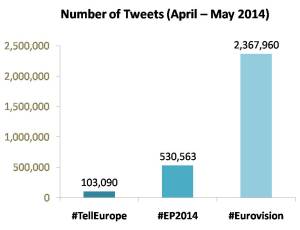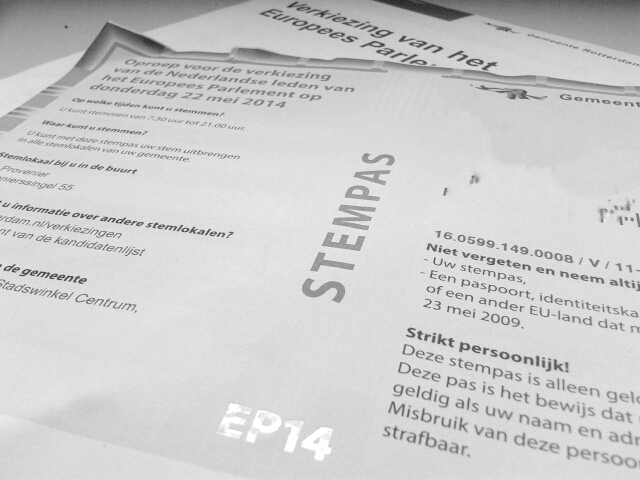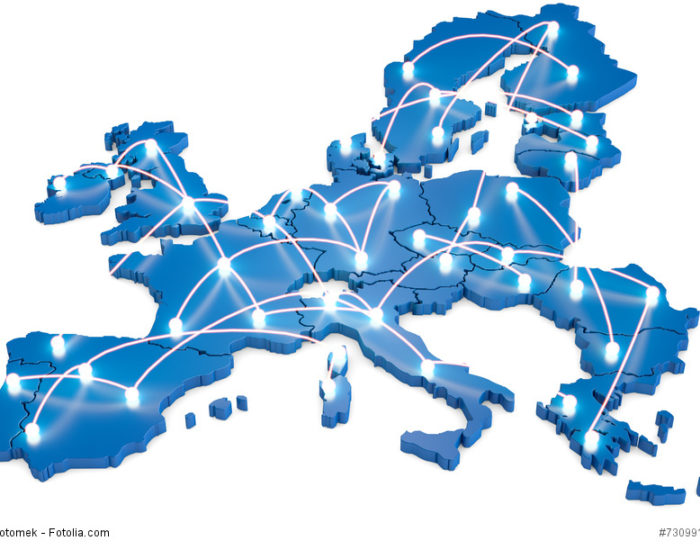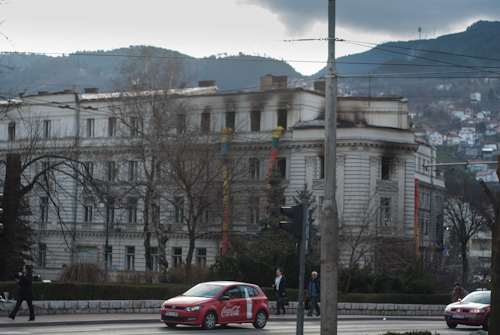The ‘No communication = no voting’-rant on EP elections 2014 – A tragedy
By Christine Huebner.
And it’s on: since Thursday some 400 million Europeans are called to the ballot to cast their vote in the European Parliament elections 2014. The mammoth election event spanning four days of continuous voting kicked off in the UK and the Netherlands on Thursday. Until Sunday, voters across 28 EU member states are invited to the polling stations.
Empty polling stations
I set my mark on the ballot early on Thursday morning before starting my workday in an entirely empty polling station in Rotterdam — no comparison to waiting in line for a good 10 minutes during the municipal elections just two months ago. This empty experience set the tone for what followed: a day of discussions with colleagues, friends, and acquaintances of which most had no intention to vote. And there was no blame – their reasons why were all comprehensible to me:
- “I know close to nothing about the candidates. There was hardly anything about it in the media. And did you see any posters or election campaigners out here in the past days?”
- “I tried to find out more about the parties and what are they are up for, but only doing the vote match test is not enough I find. It is really sad that there was so little information.”
- “I feel I have no stake in this election – what are we voting for anyways if even our own politicians are not enthusiastic about this?”
The tragedy of non-communication
Whoever I talked to, they were all right: compared to the efforts taken in national or local elections there was hardly any campaigning going on for this election. If they existed, posters in the Netherlands, Germany, Austria or the UK boasted campaign slogans void of any content: They are proclaiming such smart things as “Together for Europe”, “Rethinking Europe”, or “Say yes!” (and for matters of completion “Say No!” as well). National politicians demonstrate low enthusiasm for the vote, if they pay attention to it at all amongst a multitude of other election events going on at the same time.
Not worth the prime-time status
There were three (!!!) TV debates of the EU campaign leaders (hosted in Maastricht, Florence, and Brussels) and none of them was broadcasted by a leading national broadcasting unit, let alone in prime time: in Germany special interest channel Phoenix aired the debate, in the Netherlands public broadcaster NOS just managed to offer a web streaming. For those interested, you can view the entire sad list of broadcasters here. EU officials celebrated the 100k tweets for the Twitter hashtag #TellEurope that had been accompanying the TV debate as a great success. However, comparing this figure to a soaring 2.3 million tweets for the hashtag #eurovision during the song contest just two weeks ago, I am getting the chills of downright realism. And that is without even matching up to prime time TV coverage of the two events!
Communication done right — but for the wrong reasons
It is ironic that this vote is going to be decided by dutiful lobbyists, broadcasting decision makers, and maybe even Facebook rather than by political parties, their candidates and – most importantly – the EU citizens. For the first time, the megalomanic social network is offering its ‘I’m a Voter’ election feature for European users and may have more of an impact on voting behaviour with it than all campaigners taken together. A study published in Nature states that the use of the button may cause a small, but significant surge in voter turnout. It is – of course – not for matters of civic duties that Facebook is offering the feature, but rather as an allegedly smart marketing tool.
And the results?
What could be the potential impact of this tragedy of non-communication around the EU elections? Although this new EU parliament may become significantly more influential than any of its predecessors, it could well be elected by a non-representative sample of some 30%-40% of the population (judging by turnout figures from 5 years ago and pre-election polls).
Studies forecast that it will mostly be the well educated who will determine the composition of the new Brussels parliament — those who know how to navigate the Internet to get information that is not available in the general media. The remarkable trough of enthusiasm for this election in the media and amongst politicians themselves could further help pro-European voters gain impact: those that are intrinsically motivated to support the European idea are twice as likely to vote compared to eurosceptic voters. On the other hand, an interlocked system of low turnout, rejected election thresholds (notably Germany’s no to a 3% threshold) and the latest successes of anti-EU right wing parties could give an uncontrolled boost to their popularity in the election and status in the new parliament.
In 21 countries, voters can still turn to the ballot tomorrow, Sunday, May 25th. Although we cannot shape the communication tragedy around this EP election anymore, we can at least try to influence the real-life policy that will result.
Go cast your vote tomorrow!
–
Christine Huebner is a founding partner at d|part. She guides the team in questions of study design and choice of research methods. She is also a doctoral researcher at the University of Edinburgh, where she explores the views of young people on citizenship, identity and political participation. Christine has published widely on the participation of young people, on the changing nature of civic and democratic engagement and on questions of political legitimacy.
Disclaimer
The views and opinions expressed in this article are those of the author.
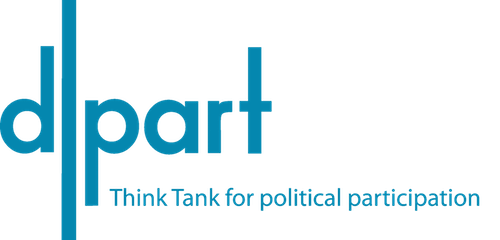
![election-dates[1]](http://dpartblog.files.wordpress.com/2014/05/election-dates1.jpg?w=470)

